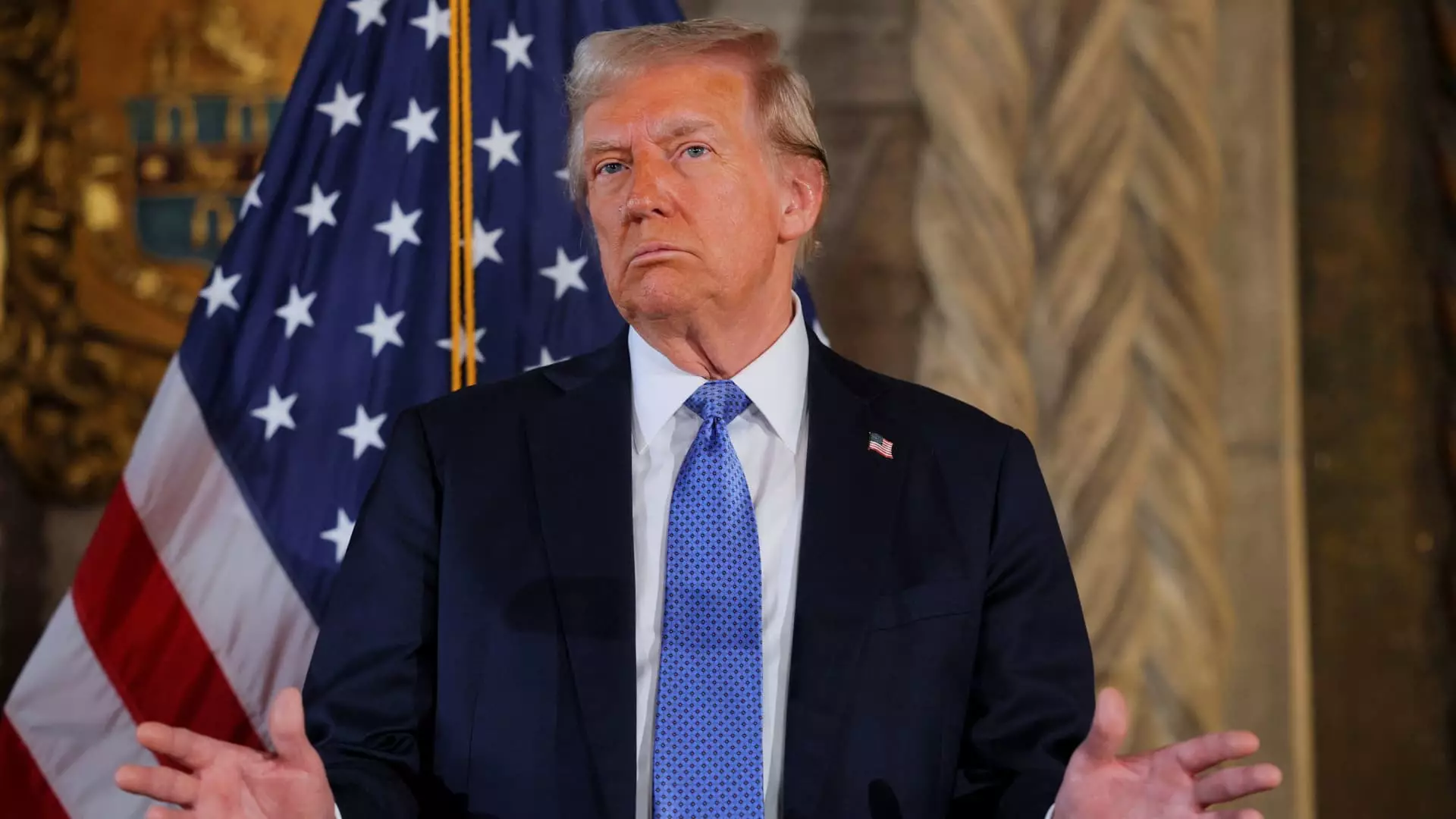As the imminent Trump presidency heralds a shift in international trade dynamics, the implications for U.S.-European Union (EU) relations are profound. In a recent declaration on his Truth Social platform, President-elect Donald Trump insisted that the EU must address its significant trade deficit with the U.S. by increasing energy purchases, specifically oil and gas. Should the EU fail to comply, he threatened to impose tariffs. With the U.S. showcasing a staggering trade deficit of $131.3 billion with the EU in 2022, Trump’s strategy raises eyebrows and demands scrutiny.
This assertion reflects not only Trump’s transactional approach to trade but also underscores a broader concern regarding the stability of transatlantic economic ties. The EU diplomats indicated a mix of surprise and preparedness in response to Trump’s comments, demonstrating an understanding of the unpredictable nature of his presidency. As tensions simmer and discussions continue, the stakes are high for both sides.
Trump’s insistence on energy purchases as a means to rectify the trade gap taps into a significant element of the EU’s strategic considerations. The continent’s reliance on external energy sources, particularly in light of ongoing geopolitical tensions with countries like Russia, creates an opportunity for the U.S. to solidify its role as a primary energy supplier.
EU heads of state recently convened to address the future of their relationship with the U.S., reinforcing the idea that energy procurement is a viable path forward. European Council President António Costa emphasized the importance of strengthening transatlantic ties, but Trump’s threats suggest a heavy-handed approach that could compromise this partnership. The German Chancellor’s outreach to Trump underscores the urgency and complexity of navigating these discussions, highlighting the tension between necessity and coercion.
The EU’s response to Trump’s demands will likely shape the future of transatlantic trade. Former Italian Prime Minister Enrico Letta has stressed the importance of the EU standing firm against perceived economic bullying. He argues that the mixing of energy and tariff negotiations is misguided, as these issues are fundamentally separate. Letta’s assertion underscores the need for the EU to leverage its own economic might in response to Trump’s transactional style.
In terms of potential retaliation, the EU’s ability to respond strategically will be critical. Letta warned that addressing economic disparities on the financial side could be a necessary avenue for the EU to explore. As tensions escalate and negotiations unfold, maintaining a balanced approach will require careful diplomacy and economic strategy on both fronts.
The prospect of tariffs under the Trump administration introduces a volatile element into the already complex landscape of international trade. Economists have expressed concerns about the adverse effects of such measures on domestic inflation and economic stability. Analysts remain uncertain about the extent to which Trump can, or will, implement these tariffs. The ambiguity surrounding his intentions raises critical questions about the long-term consequences for trade relationships with other nations, particularly with Mexico and Canada.
The wide-ranging implications of Trump’s rhetoric cannot be overstated. As the largest recipient of EU goods, the U.S. stands at a crossroads of opportunity and risk. The EU has signaled a willingness to enhance energy imports, which presents a potential pathway for mutual benefit. However, this will require negotiations characterized by clarity, transparency, and ultimately, cooperation.
As Trump prepares to take office, it is imperative for both the U.S. and EU to pursue pragmatic approaches to trade relations. Clear communication and economical strategies should take precedence over threats of tariffs and aggressive negotiations. The focus should be on fostering partnerships that not only address trade deficits but also align with shared geopolitical interests.
The evolving narrative of U.S.-EU trade relations under the Trump presidency is fraught with challenges. Yet, the need for stability and collaboration in these discussions is undeniable. Both sides must navigate the intricacies of international trade with insight, diligence, and resolve to secure a prosperous future for transatlantic ties. Through measured response and strategic engagement, there lies potential for both the U.S. and EU to emerge stronger in the face of uncertainty.


Leave a Reply